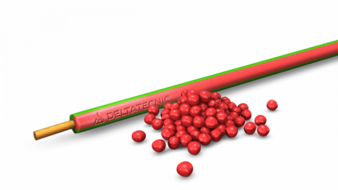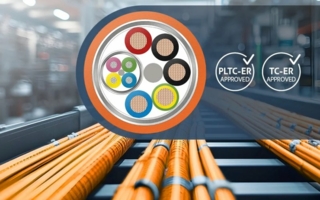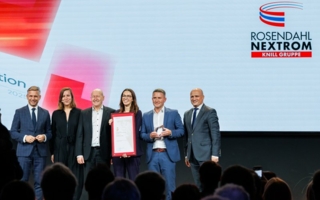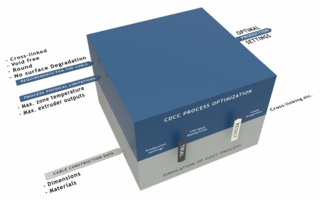27/01/2023 – Fluoropolymers
Delta Tecnic improves cable properties
Delta Tecnic, a benchmark company in the production of masterbatches for the cable and PVC industry, values the manufacture of masterbatches and coloured compounds through the dilution of fluoropolymer resin.
Thanks to their ability to retain stability in almost all chemical environments, fluoropolymers give high performance to cables, which is especially relevant in the context of digital transformation. The fluoropolymer masterbatch market size was valued at $426.6 million in 2020 and a compound annual growth rate of 3.6% is estimated between 2021 and 2027, according to a study by Global Market Insights. Precisely, the growing demand from cable companies contributes to the increase in the use of this type of masterbatches. And it is that fluoropolymer masterbatches are widely used in colouring applications of various products due to their characteristics which are superior to other thermoplastic resins.
After more than five years using this type of polymer, Delta Tecnic highlights the excellent combination of properties in terms of protection against oils and chemicals, as well as high thermal resistance. Among the qualities of these coatings, their low surface energy, low coefficient of friction, high inertia to any chemical agent, high resistance to abrasion and zero alteration due to light are emphasised.
Delta Tecnic began its offering with masterbatches made with “FEP” – which stands out for being highly transparent and resistant to sunlight – and with “EFTE”, highly durable due to its chemical resistance and stability to temperature changes and ultraviolet rays. Now the company has increased its range by incorporating both “PFA”, with creep resistance and thermal stability, and “PVDF”, which exhibits efficient piezoelectric and pyroelectric properties.
The cable industry is diversifying and growing hand in hand with new technologies, especially with the new generation of wireless networks (5G) and high speeds. It is precisely in this sector where it is important to reduce the weight of cables and increase connections thanks to the Internet of Things (IoT). Due to their good general behaviour, fluoropolymers can be used in difficult conditions, allowing for reducing the use of insulation and the dimensions of the cables.
There are multiple benefits associated with the use of these resins in cables. One of them is its resistance to extreme temperatures, very useful in high performance applications in environments where there are extreme climates with very wide temperature ranges from very high to very low.
Their chemical resistance makes them optimally used in heavy machinery units or in chemical factories where there is a danger of both high temperatures and contact with chemical agents. Obviously, these properties make them exceptional in case of exposure to chemical elements, avoiding a decrease in electrical performance or even a power failure, with all the negative consequences that this electrical shutdown can cause.
There is an increasing demand for the reduction of thicknesses and weights in the cable industry. Fluoropolymers, thanks to their excellent insulation properties, enable the manufacture of cables with very fine insulation, helping to reduce weight, as well as enabling wiring in designs that require extremely small cables.
Thanks to their chemical structure, fluoropolymers are extremely flexible and in applications where continuous movements are required, their high resistance to deformation is highly valued to avoid breakage in the conductor insulation after long cycles of use. These materials also have exceptional insulative properties, allowing for optimum insulation and are an excellent solution for very long-distance cabling with exceptional insulation requirements. Fluoropolymers also have a very low coefficient of friction and wear resulting in a much lower loss of electrical energy than other polymers used as insulators. This makes them the best option in circuits where a loss of energy would be a potential problem.
Delta Tecnic
Pol. Ind. Molí de les Planes
Carrer Rec Molí de les Planes, s/n
08470 Sant Celoni, Barcelona, Sain
Tel.: +34 938 674 284
deltatec@deltatecnic.com
www.deltatecnic.com




